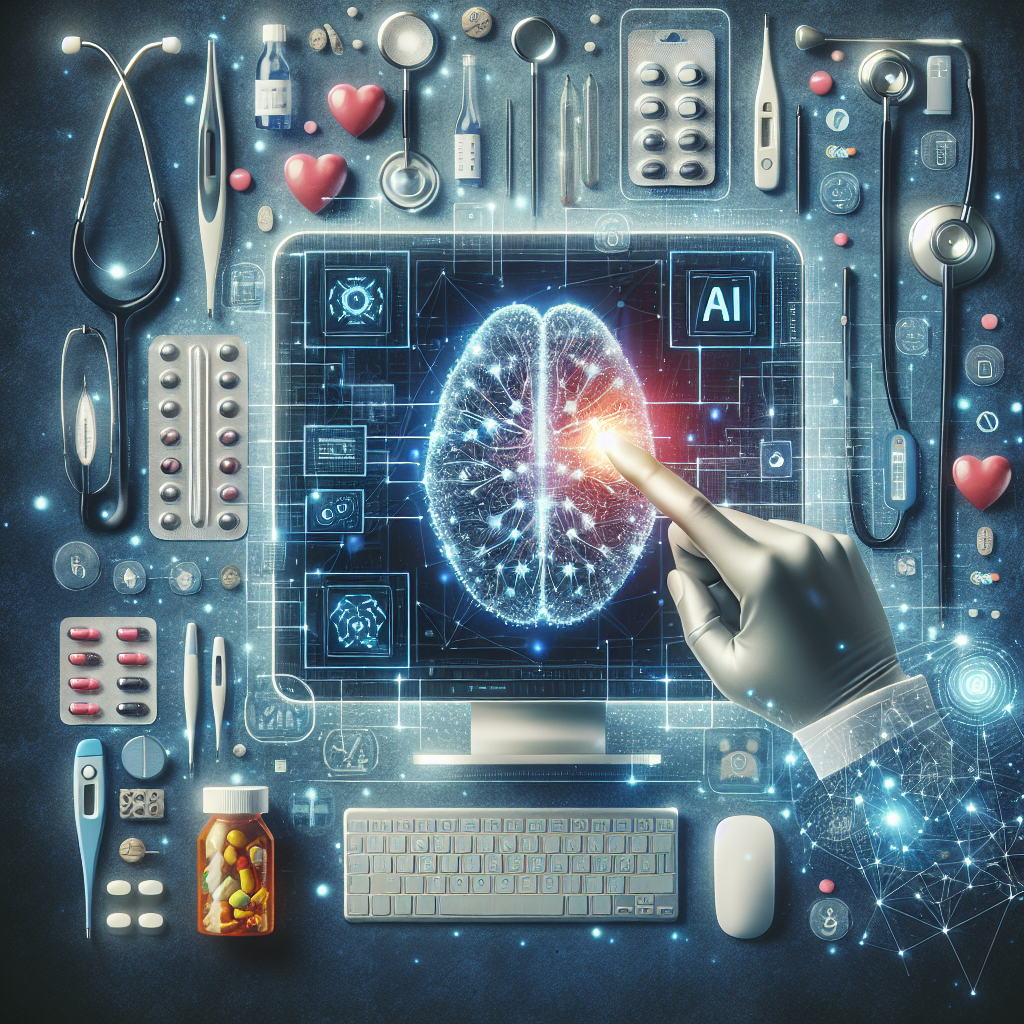Artificial Intelligence (AI) has been making waves in various industries, revolutionizing the way we work, communicate, and live. In recent years, AI has been increasingly utilized in healthcare, offering new possibilities for improving patient care, diagnosis, treatment, and overall health outcomes. The democratization of AI in healthcare is breaking down barriers and creating a more inclusive and accessible healthcare system for all.
AI in healthcare involves the use of algorithms and machine learning to analyze complex medical data and provide insights that can help healthcare professionals make more accurate diagnoses, develop personalized treatment plans, and improve patient outcomes. By leveraging AI technologies, healthcare organizations can streamline processes, reduce costs, and improve efficiency while also delivering better quality care to patients.
One of the key benefits of AI in healthcare is its ability to process and analyze large volumes of data quickly and accurately. This can help healthcare providers identify patterns and trends that may otherwise go unnoticed, leading to more timely and effective interventions. For example, AI can be used to detect early signs of diseases such as cancer, diabetes, or heart conditions, allowing for earlier intervention and better outcomes for patients.
AI can also help healthcare providers personalize treatment plans based on individual patient data, preferences, and needs. By analyzing a patient’s genetic makeup, medical history, lifestyle factors, and other data points, AI can recommend the most effective treatments and interventions for each patient, leading to better outcomes and improved quality of life.
The democratization of AI in healthcare is making these advanced technologies more accessible to a wider range of healthcare providers, regardless of their size or resources. Cloud-based AI platforms and software solutions are enabling smaller healthcare organizations to leverage AI tools and technologies without the need for expensive infrastructure or specialized expertise. This democratization is leveling the playing field and empowering healthcare providers of all sizes to deliver high-quality care to their patients.
Furthermore, the democratization of AI in healthcare is also benefiting patients by providing them with more personalized and efficient care. Patients can now access AI-powered tools and applications that can help them monitor their health, manage chronic conditions, and make informed decisions about their care. For example, AI-powered chatbots can provide patients with personalized health advice, reminders for medication or appointments, and guidance on lifestyle changes to improve their health.
Despite the many benefits of AI in healthcare, there are also challenges and concerns that need to be addressed. One of the main challenges is ensuring the privacy and security of patient data when using AI technologies. Healthcare organizations must implement robust data protection measures and comply with regulations such as the Health Insurance Portability and Accountability Act (HIPAA) to safeguard patient information and prevent unauthorized access or misuse.
Another challenge is ensuring the accuracy and reliability of AI algorithms and models used in healthcare. AI systems are only as good as the data they are trained on, and biases or errors in the data can lead to inaccurate or unreliable results. Healthcare organizations must carefully validate and test AI algorithms to ensure they are providing accurate and trustworthy information that can be used to make informed decisions about patient care.
Despite these challenges, the democratization of AI in healthcare is paving the way for a more efficient, personalized, and inclusive healthcare system. By breaking down barriers and making AI technologies more accessible to healthcare providers of all sizes, we can improve patient outcomes, reduce healthcare costs, and ultimately create a healthier and more equitable society.
FAQs:
Q: What are some examples of AI applications in healthcare?
A: Some examples of AI applications in healthcare include medical imaging analysis, predictive analytics for disease prevention, personalized treatment recommendations, virtual health assistants, and medication management tools.
Q: How can AI improve patient outcomes in healthcare?
A: AI can improve patient outcomes by facilitating earlier diagnosis of diseases, providing personalized treatment plans, reducing medical errors, improving care coordination, and empowering patients to take control of their health.
Q: What are some of the challenges of using AI in healthcare?
A: Some of the challenges of using AI in healthcare include ensuring data privacy and security, validating the accuracy and reliability of AI algorithms, addressing biases in data and algorithms, and integrating AI technologies into existing healthcare workflows.
Q: How can healthcare organizations ensure the ethical use of AI in healthcare?
A: Healthcare organizations can ensure the ethical use of AI in healthcare by implementing robust data protection measures, complying with regulations such as HIPAA, conducting regular audits and validations of AI algorithms, and involving patients in the decision-making process regarding the use of AI technologies.

